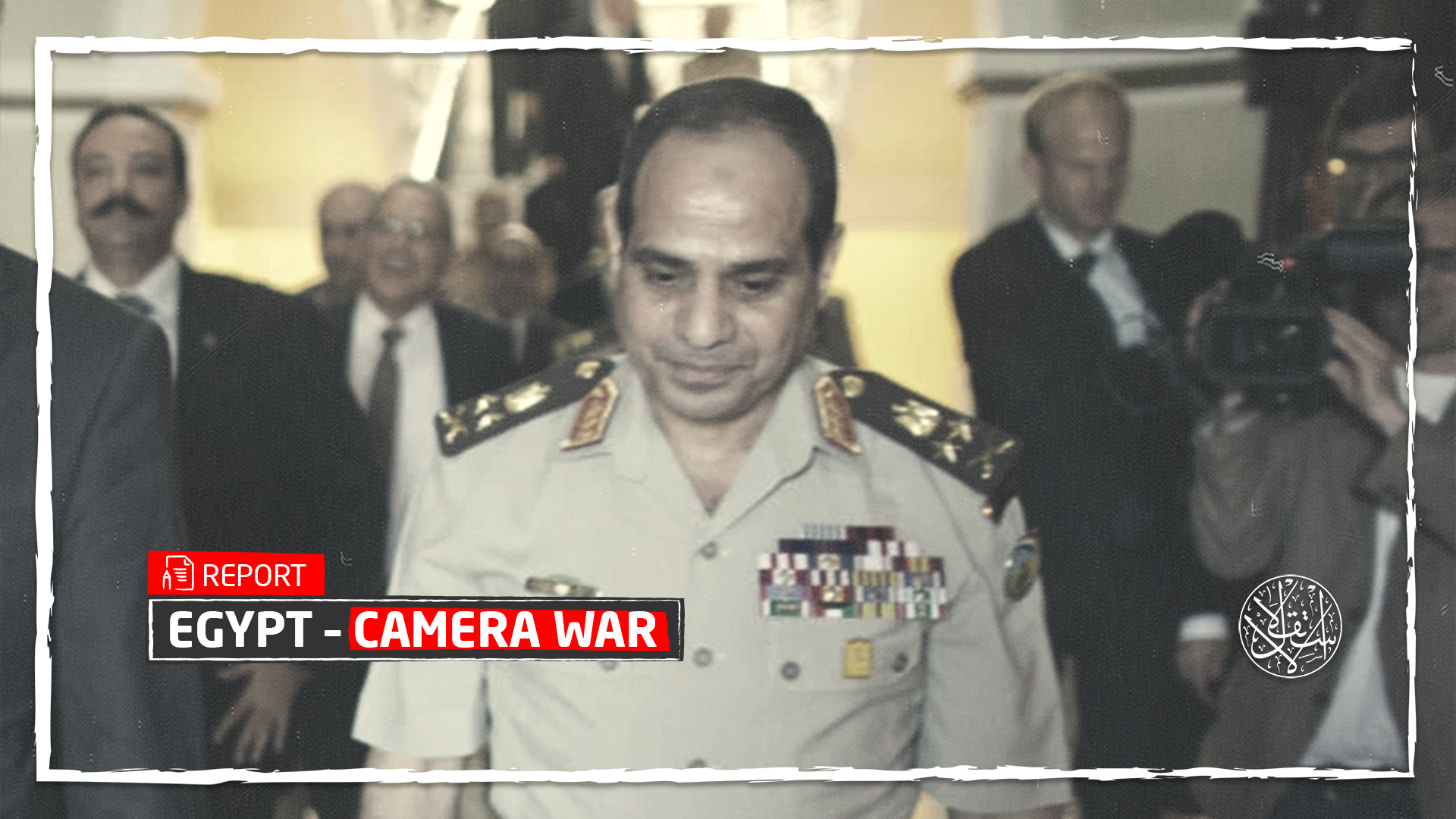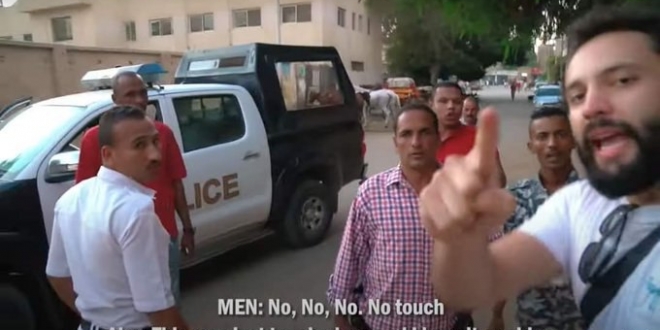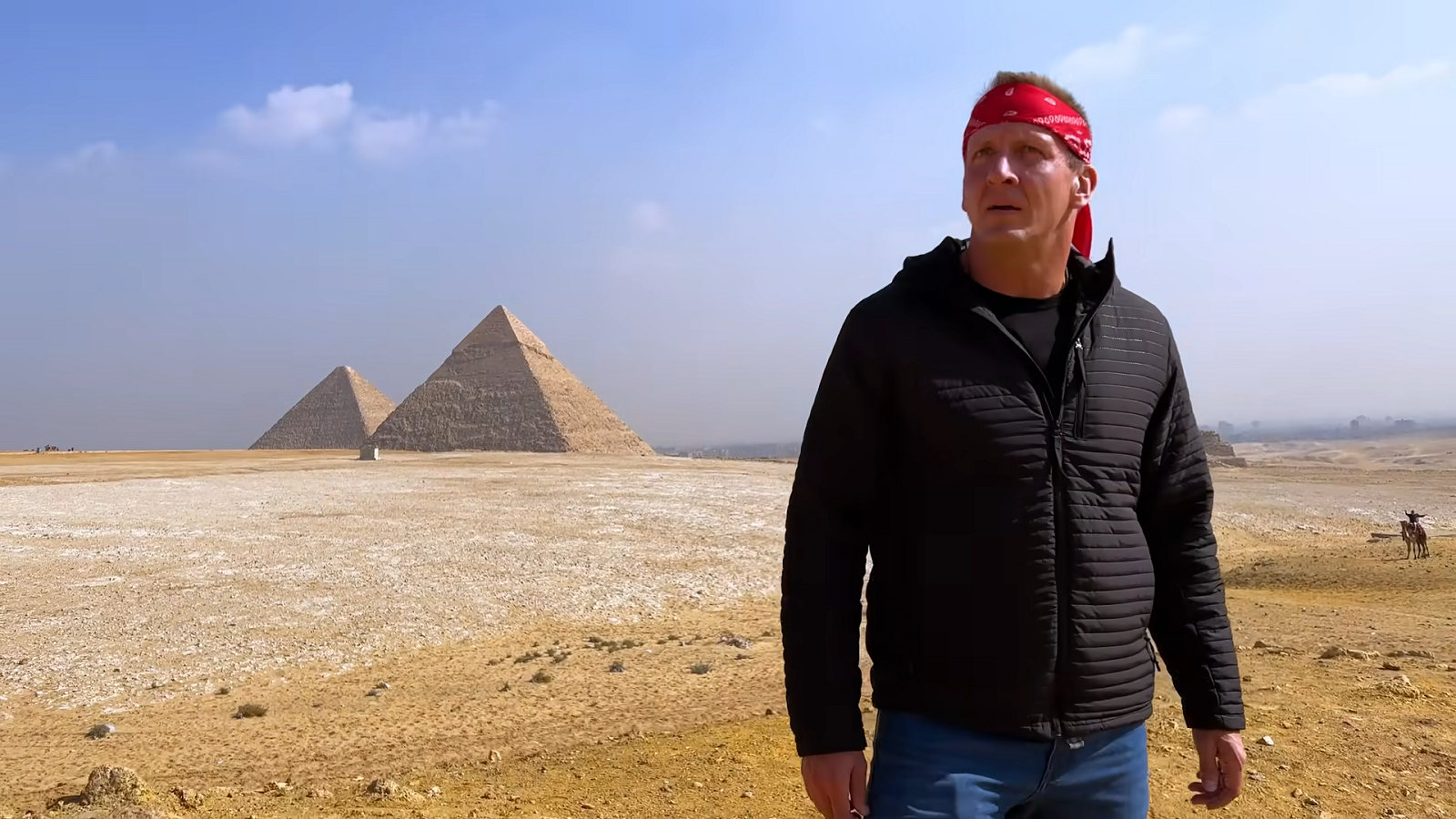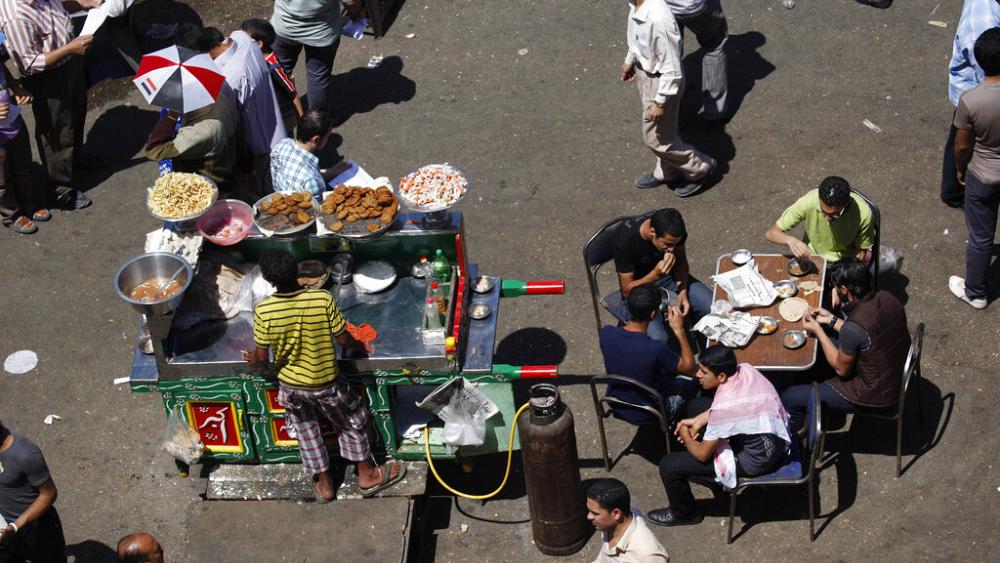How One US Street Food Blogger Exposed Sisi’s Authoritarian Rule?

When YouTuber Will Sonbuchner, who has more than 8 million YouTube followers, arrived in Egypt, he probably didn't expect to be repressed by Egyptian security services, as he was doing a normal activity that did not go beyond street photography, but the police's handling of him and the prevailing intelligence mentality made him say that Egypt is the worst place to film in Africa.
Sonbuchner, known as Sonny, a blogger who built his fame through "Street Food" videos, posted four videos on his YouTube channel in which he said that "upon his arrival in Egypt, the police confiscated all the camera equipment he had with him" and that "the entire series was filmed using an iPhone."
He added that he was not allowed to use the cameras he had brought from him after four hours of interrogation in the early morning hours. He also referred more than once to his ban on filming and the use of his equipment, despite obtaining permission to photograph from the General Information Authority.
Tourists as Criminals
Sonbuchner, best known for his travel and food content on his YouTube channel “Best Ever Food Review Show,” expressed disappointment at the treatment he and his crew received, noting that Egyptian authorities had ordered him to remove several footage throughout his trip, as well as extensive bag inspections and the confiscation of cameras.
He said he was interrogated for about four hours to find out why he visited the country and the purpose of taking pictures and videos. Although he used the phone to document his trip to Egypt, he ended up going to the police station, asking, "I don't know what's going on with me right now, why am I here?” but with no reply.
To Sonny's shock, it had been very natural in Egypt to experience such a repression, since the intelligence mentality experienced by Egyptian civilians by the Sisi regime is extreme in things that are not worth stopping.
Sonny appeared in the video talking about how his experience with the Egyptian police did not end when his equipment was confiscated, and even while using the phone to film his show, the police stopped him and asked to review the footage he filmed.
Then, he was then asked to delete what he had photographed, claiming that the images were "not beautiful and did not live up to standards".
Sonny complied with what the police had asked for and deleted the clips, and asked in the video: "When did the police become documentary filmmakers?"
Sony pointed to the "incompetence of the security man who supervised the deletion of files", because he "does not even know how smartphones work, and that these files can be retrieved with one click of the basket of deleted," pointing out that he does not know why his equipment was confiscated and prevented from filming.
However, he noted that the timing of his arrival in Egypt, in mid-January, and the expiry date of his January 25 photo permit, which coincides with the anniversary of the 2011 revolution, indicate that Egyptian police are afraid to witness anti-regime demonstrations that he may film and publish.
'Criminal' Bloggers
What happened to Sonny is not a one of its kind, rather it follows a systemic repression of foreign bloggers in Egypt.
It's not just about religious and sexual freedoms, just carrying a camera in the street can expose a person to arrest and accountability in Egypt because of low freedoms and lack of human rights.
In 2018, Hitchhiker and blogger Jojo Aigner posted a video where he said that a police checkpoint where the policemen looked scared and treated him as an alien, they were unfriendly, searched his whole luggage, shocked at his medication pills, unrespectful, 10 police officers screamed and yelled, put him in a police car,

American Vlogger Alex Chacon was filming in the streets of Cairo when several people pulled him, insulted him, harassed him and pulled the camera from him. However, he succeeded in documenting this painful footage with his camera while he was in the Nazlet el-Samman area adjacent to the pyramids of Giza.
In March 2021, American YouTube channel “Travel Far, Eat Local” vlogger was stopped in the streets of Cairo, was harassed by the police authorities, had his equipment confiscated and eventually had a terrible experience in filming in the streets.
In December 2021, Indian blogger Nomad Shubham had a similar experience, where he was stopped by the police for no accusations whatsoever except filming in a public street, a total of 2 million views were counted on his video discrediting Egypt.
These waves of bloggers posted videos on YouTube, discrediting the Egyptian government promotion of tourism, and advising people not to visit Egypt, raising questions on the feasibility of the official multi-million advertisements that were beaten by some amateur videos and vloggers on YouTube.
Local Suffering
If these foreign bloggers had such hard times in filming in the Egyptian streets, how can one expect the treatment of authorities to its Egyptian youth and vloggers?
Al-Estiklal interviewed Hasan Kamel, an Egyptian vlogger, who said that when he travels to parts of the Sahara Desert, he constantly puts a Plan B for traveling since any police checkpoint can stop him from traveling for no reason.
“It’s totally random and there is no laws, it’s just a matter of the police officer’s personal opinion and view, if he likes you then you are good to go, if he sees that your cameras are not into his category of preferable types, then he may stop you from further traveling into the desert.”
“I’ve had several trips outside of Egypt and this country is by far the worst I can travel within,” he concluded.
Dina Bassam, an exotic blogger who travels many parts of Egypt, told Al-Estiklal that she travels “in fear” of getting searched or harassed by police authorities.
“I haven’t had a personal experience of abuse against me, but many of my friends had a trauma experiencing how policemen abuse them verbally and sexually, just for holding cameras or wearing niqabs or wide and long hijabs.”
“We as bloggers know that no one has rights when it comes to the police abuse of power, and we also know that the police forces treat the camera as a weapon, they have made that clear since everyone witnessed how they abused their power since the beginning of the coup.”
“I have stopped filming in public or doing photo sessions for anyone, I’m not willing to risk my life or dignity for a camera, especially for doing a personal hobby not for journalism or documenting something important, I do not want to quit filming, but this is my situation now,” she added.
Sources
- What is the story of the American YouTuber who described Egypt as ‘the worst place to shoot’? [Arabic]
- U.S. YouTuber Questions Egyptian Security: Police Officers Filmmakers!
- U.S. YouTuber and Egyptian police: Why did the well-known influencer Sonny say he ‘will never visit Egypt again’ and ‘no one is advised to visit it’? [Arabic]







